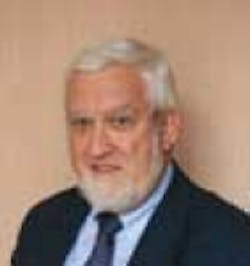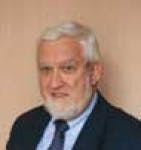GEP-AFTP to promote technology transfer in emerging arenas
Jeremy Beckman
Editor, Europe
France’s two leading oil and gas industry associations plan to merge on July 1. The union will bring together GEP, the suppliers’ council representing nearly 200 contractors, manufacturers and service companies with AFTP, which has more than 1,000 individual members.
Ropers
Gombart
Momplot
“AFTP is not so involved in international issues as GEP,” admits the association’s Director General Gabriel Gombart. “But by working together, we can do more than we have in the past for both sets of members.”
Ropers adds: “We have to help our smaller companies in particular to prosper in international markets. By doing that, we’ll help these companies to have a long-term future despite the new local content constraints.”
The two associations already co-organize regular technical events such as the annual Hydrocarbon Days sessions in Paris in October; and one-off presentations such as the recent seminars on Peak Oil and Total’s CLOV project offshore Angola, both staged with the SPE.
Gombart is keen to promote more such events to showcase emerging French technologies under development for oil and gas. GEP’s General Manager Gerard Momplot adds: “We also need to organize more technical days followed by B-to-B meetings; this is required by our oil company backers, Total and GDF Suez, as well as the service supplier tenders such as Technip, CGGVeritas, in producing countries on all continents.
GEP-AFTP also plans to form new technical committees – CLARs – to promote technology development and seminars on topics ranging from upstream to downstream, and including transportation, HSE, and CO2 and gas storage.
“To do all this, we will need more help from volunteers,” Ropers says, “who would travel on GEP/AFTP’s behalf and expenses. Most of the people we talk to in large organizations agree with what we are planning.”
Internationally, the new association plans to focus on two areas in particular. One is the Asia/Pacific region, says Momplot. “We are considering opening an office in Singapore which would have permanent local staff. We would aim to do the same job there that GEP does in Paris, – i.e. organizing events, and preparing delegations for technical missions to meet the main IOCs and NOCs – but not only. This branch would also help our smaller companies in particular expand local contacts and networks, and it will assist GEP’s efforts to develop opportunities in Australasia.
“The other near-term priority is Brazil, which is a much more difficult market for French companies to penetrate. This will be the next project we would like to start with our members’ support.”
In the meantime, GEP continues to assemble oil and gas trade missions from Paris, such as a recent delegation of French companies to Abu Dhabi. GEP is also widening its presence in the CIS region. “We have already set up an association of big companies in Kazakhstan (AERTeFKA),” Momplot points out. “Most are GEP members, but not all. “Our aim is to set up clusters of networks in Kazakhstan bringing together French and Kazakh companies, local academies, and technical schools, to develop new technologies and promote technology transfer.
“In Turkmenistan, the approach has to be different – you must advance step-by-step to get agreement at the very top level, then hope to establish good relations. The priorities for the industry there are gas management, transport and the environment, both onshore and in the Caspian Sea. They are also quite eager to be given new technologies.”
Another initiative that will continue is GEP’s CITEPH program, which provides access to funding to French SMEs to develop promising R&D. The program is sponsored by 10 of the leading oil companies and offshore/onshore engineering contractors in France, with support from IFP Energies nouvelles. Accrued funding since the program started has reached around €23M for 100 projects.
CITEPH is currently in its fifth year: the latest call for new project proposals was issued in March, and funding distribution will be determined in December. Last year 80 proposals were accepted, of which 22 were selected for sponsorship.
CITEPH promotes seven main research themes, ranging from accessibility to new exploration zones (i.e. HP/HT, Arctic, unconventional resources), through enhanced oil recovery, deep offshore production, new materials, offshore gas transport, visualization techniques, and fluids management.
“We have had a lot of suggestions for Arctic developments,” says CITEPH Director Philippe Perreau.
“These include adapting ROVs to detect icebergs or to position large structures on the seabed. We have other projects examining how to promote safety close to FPSOs, or to protect them against impact, for instance, from loading buoys. On average we approve 25 new projects each year, which last typically for 12-15 months.”
Offshore Articles Archives
View Oil and Gas Articles on PennEnergy.com



